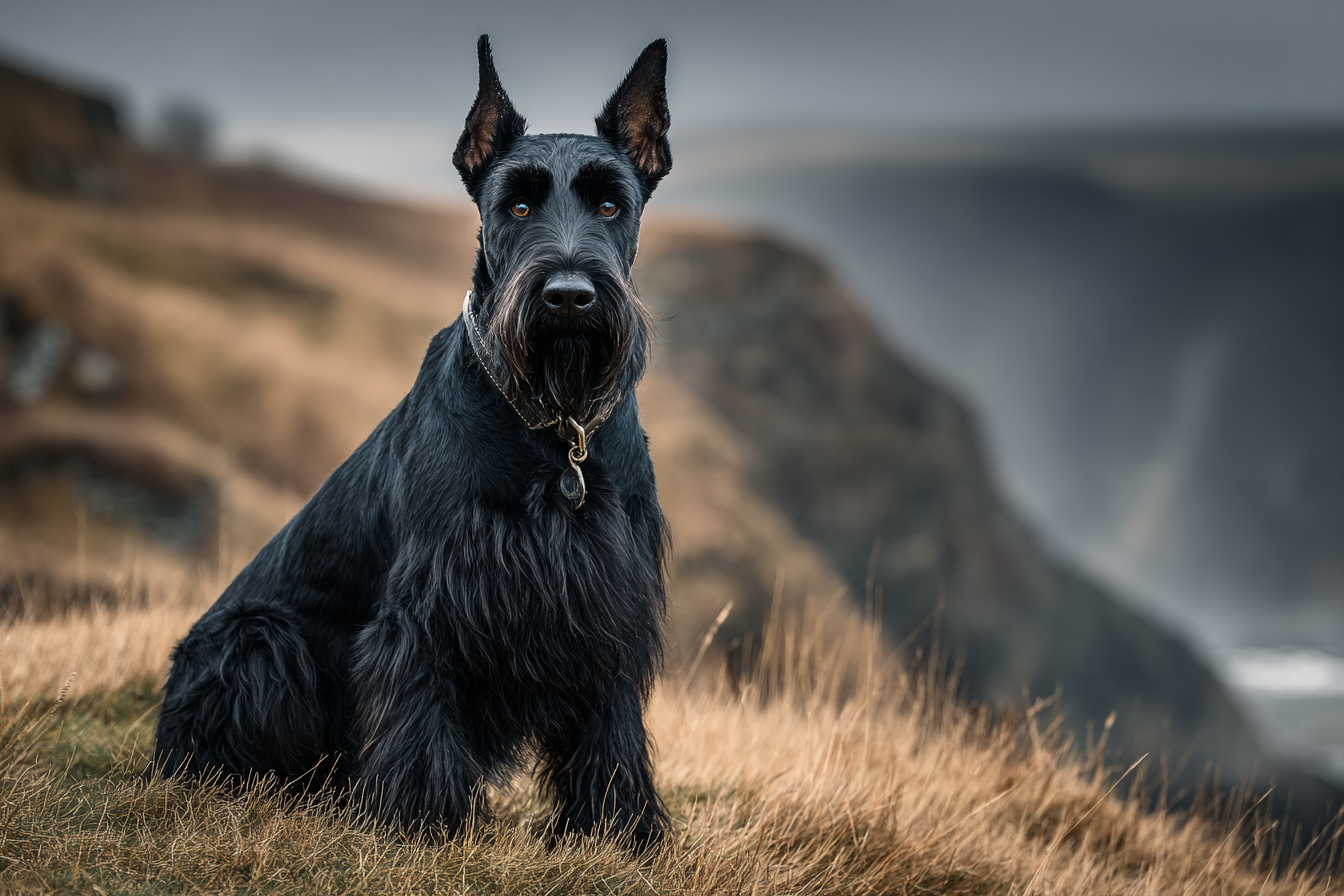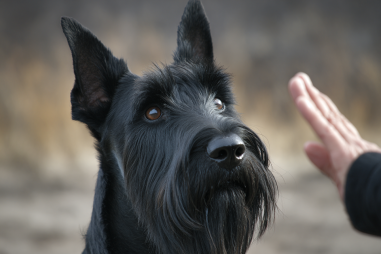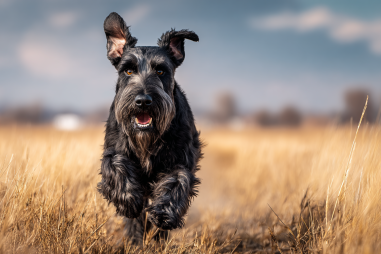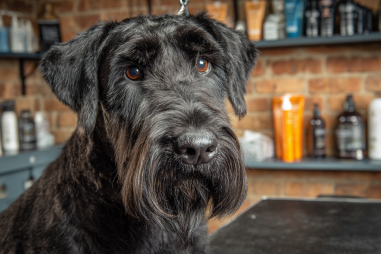The Giant Schnauzer is a remarkable breed known for its imposing size and striking appearance, but it’s their temperament and personality that truly make them memorable companions. Whether you’re a seasoned dog owner or considering this breed for the first time, understanding the Giant Schnauzer’s behavioral traits is key to forging a rewarding relationship with your furry friend. From loyalty and intelligence to their protective instincts, let’s explore what really makes the Giant Schnauzer tick and how they fit into family life and beyond.
Overview of Breed Temperament
The Giant Schnauzer is characterized by a temperament that blends alertness, confidence, and a strong work ethic. Originally bred as a versatile farm and guard dog, this breed naturally possesses a protective nature paired with high energy levels. They are known for being both assertive and balanced—never shy, nor unnecessarily aggressive, but always attentive to what’s going on around them.
These dogs are incredibly loyal to their families and tend to form deep bonds with their owners, often becoming highly devoted protectors. Their temperament demands consistent interaction and mental stimulation, as they thrive when given tasks or challenges to focus on. Without proper engagement, a Giant Schnauzer can become bored, which sometimes leads to destructive behaviors.
Typical Personality Traits
When it comes to personality, Giant Schnauzers are known for several key traits:
- Intelligent: They are quick learners and enjoy mastering new commands and tricks, which makes training an enriching experience for both dog and owner.
- Loyal: This breed is extremely devoted and often forms close bonds with family members, showing unwavering devotion and affection.
- Protective: Giant Schnauzers naturally take on a guardian role. They are wary of strangers but rarely aggressive without cause, making them vigilant watchdogs.
- Energetic: Their high energy means they thrive in active households and require ample exercise to stay balanced and happy.
- Independent: While loving, they can have an independent streak that calls for patient, consistent training methods.
Social Behavior with Family and Strangers
Within the family setting, a Giant Schnauzer is often warm, communicative, and engaging. They enjoy spending time with their humans and are particularly sensitive to their owners’ moods and emotions. This emotional sensitivity makes them excellent companions for those who want a dog that truly connects on a deeper level.
Regarding strangers, Giant Schnauzers tend to be cautious and observant. Their natural protective instincts mean they will always keep an eye out for potential threats, but well-socialized Schnauzers are typically able to distinguish between friend and foe. Early and ongoing socialization is crucial to help them remain calm and confident around unfamiliar people without becoming overly suspicious or aggressive.
Interaction with Children and Other Pets
The Giant Schnauzer can be a wonderful family dog, including those with children. Their playful and energetic nature pairs well with kids, especially if the children know how to interact respectfully and understand dog behavior. However, as with any large and strong dog, supervision is essential to prevent accidental knocks or play that gets too rough.
When it comes to other pets, Giant Schnauzers can coexist peacefully, especially if introduced properly at a young age. Their strong-willed temperament means they tend to assert dominance, so early social training helps establish a household hierarchy that keeps things calm. With cats or smaller animals, careful introductions and monitoring are advised to ensure a harmonious relationship.
Training Considerations Based on Temperament
Training a Giant Schnauzer requires a thoughtful, consistent approach that matches their intelligence and independent nature. These dogs respond best to positive reinforcement techniques such as treats, praise, and play. Harsh discipline or inconsistent rules can lead to confusion and defiance.
Because Giant Schnauzers are so smart and energetic, they benefit tremendously from mental stimulation like obedience challenges, puzzle toys, and agility exercises. Regular training sessions also help curb potential behavioral problems that arise from boredom or lack of direction.
This breed’s protective instincts mean that socialization is equally important—exposing the dog to a variety of environments, people, and experiences early on will help them develop into well-rounded, adaptable adults. Taking advantage of puppy classes and positive group interactions can go a long way in preventing fearfulness or aggression later.
Matching the Breed to Your Lifestyle
Considering a Giant Schnauzer means being honest about your daily life and activity level. This breed thrives in homes where they receive plenty of exercise and mental engagement. Ideal owners are those with the time and dedication to provide long walks, playtime, and training sessions every day.
For apartment dwellers or less active families, the Giant Schnauzer might pose challenges unless there’s a firm commitment to meeting their needs outside the home. They are not suited for an owner looking for a low-maintenance or “couch potato” dog. Instead, they excel with active individuals or families who enjoy outdoor activities like hiking, running, or dog sports.
Because of their protective instincts, owners must be prepared to establish firm leadership and consistent boundaries. A Giant Schnauzer is a working dog at heart and needs a purpose to stay content and obedient.
Understanding the Giant Schnauzer’s True Nature
The Giant Schnauzer’s temperament and personality make them a dynamic and deeply rewarding dog for the right family. They combine intelligence, loyalty, energy, and protectiveness in a way few breeds can match. Knowing what to expect can help set you and your dog up for a lifetime of companionship filled with fun, challenge, and devotion.
With proper training, socialization, and exercise, a Giant Schnauzer will not only meet but often exceed expectations as a faithful family member and guardian. Their unique personality makes each day interesting, and their bond with their owners is a testament to the power of understanding and respect in any relationship with animals.







